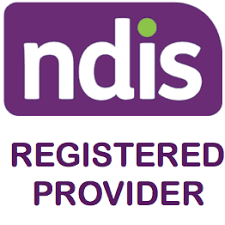Apps
Course Overview
An increasing number of children and adolescents entering childcare centres, preschools, and schools have been exposed to abuse, neglect, or household dysfunction. These experiences create strong neural pathways associated with fear and survival responses. Research shows that when children are consumed by fear, they struggle to achieve the calm, regulated state needed for learning, growth, and development (Perry, 2004; Schore, 2001; Stein & Kendall, 2004).
Educators play a critical role in supporting these students by creating environments that are sensitive to trauma. By embedding trauma-aware practices into teaching, educators can help establish safety, empowerment, collaboration, choice, and trust, enabling students to re-engage with learning and build resilience.
This interactive workshop provides participants with knowledge, tools, and strategies to understand the impact of trauma and to develop classroom practices that foster wellbeing, inclusion, and academic success.
Learning Outcomes
- Define and describe the characteristics and types of trauma.
- Understand the impact of trauma on brain development, learning, and behaviour.
- Explore strategies to create trauma-sensitive learning environments that establish safety, trust, empowerment, choice, and collaboration.
- Apply practical approaches to support cognitive, social, and communication development in children impacted by trauma.
- Recognise the importance of self-care and managing compassion fatigue in supporting roles.
Professional Development Relevance
This workshop supports the professional learning of teachers, behaviour support practitioners, support staff, and allied health professionals working in education. It addresses essential areas of inclusive education, student wellbeing, and trauma-informed practice.
Key Links to Professional Growth
- Builds understanding of trauma and its effects on learning and development.
- Strengthens capacity to create safe, supportive, and inclusive classroom environments.
- Promotes reflective practice and strategies that support both student and educator wellbeing.
Outcomes for Practice
- Participants will leave with practical strategies they can implement immediately in their classrooms and care settings.
- The workshop promotes reflective, skill-based learning to improve engagement and outcomes for students impacted by trauma.
- Educators and staff will enhance their ability to support vulnerable learners in compassionate, evidence-based ways.
Who Should Attend
- Early childhood educators
- Primary and secondary school teachers
- Teacher assistants and learning support officers
- Parents and caregivers
- Disability support staff
- Case managers
- Youth and community workers
- Allied health professionals
- Behaviour Support Practitioners
Delivery Format
The workshop is delivered in an interactive and practical style, combining theory, case examples, and hands-on strategies. Participants will engage in reflection, discussion, and activities designed for direct application to their practice.
Workshops can be delivered online or face-to-face, and each session is tailored to the specific needs, priorities, and context of your school or organisation to ensure maximum relevance and impact.



